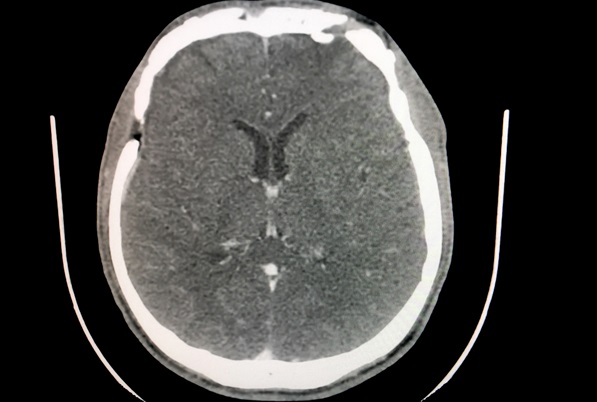The effects of neurotrauma, which are injuries that affect the brain, spine, and nervous system, can significantly impact children and their families. While no cases of pediatric neurotrauma are the same, many young patients struggle with similar emotions and challenges after experiencing neurotrauma, such as behavioral changes, grief over the effects of the injury, and frustration with the recovery process. As a parent or caregiver, you will play a crucial role in helping your child adjust to this new normal while helping others understand them. Here are some tips on how to make the rehabilitation process easier.
1. Seek professional assistance
Having professional help during the rehabilitation process is an essential part of helping young patients who have experienced pediatric neurotrauma. These professionals work with parents and caregivers to create personalized treatment plans tailored to the child's needs. Medical providers who are often involved in the neurotrauma recovery process include:
- Pediatric neurosurgeons
- Neurologists
- Physiatrists
- Orthopedic surgeons
- Neuropsychologists
- Physical therapists
- Occupational therapists
These comprehensive medical teams can work with families and caregivers and provide insights into the short and long-term effects of pediatric neurotrauma, guiding them on how to address and manage them effectively.
2. Create a supportive environment at home
A supportive environment can significantly improve a child or adolescent's recovery. This starts with educating oneself, family members, and close friends to create a supportive network that understands the child's condition and reinforces their recovery. Surrounding them with love, patience, and understanding can significantly help them as they navigate life after neurotrauma, whether they experience a mild or severe traumatic brain injury (TBI). Fostering a positive atmosphere at home and school may include setting realistic expectations and maintaining a consistent routine.
3. Advocate for your child
Once the child is ready to return to school, talk to their teachers and educate them about the child's condition. Many educators will need specific details about their routine and the severity of their TBI to help the child succeed in the classroom. By working together, teachers and parents can create an individualized education program (IEP) that addresses the child's unique learning requirements. Advocate for accommodations as needed, such as extended test-taking time or modified assignments.
In addition, several organizations, such as Parent to Parent and the Family Network on Disabilities, can inform parents about their child's rights in the education system and how to ensure they receive a quality education. These organizations can teach parents about their role as caregivers and advocates and guide them to available community and state resources.
3. Promote a healthy lifestyle
Healthy habits can significantly contribute to the child's recovery process. This may include regular exercise, a balanced diet, and plenty of sleep to support physical and mental well-being. Consult their healthcare team to develop an appropriate exercise routine and diet that aligns with the child's abilities and restrictions while making it something they look forward to and enjoy. Additionally, limit screen time and promote activities that stimulate brain function, such as puzzles, reading, card games, and learning a musical instrument.
4. Emphasize social connections
Isolation can be a common challenge for children and adolescents after neurotrauma. Be proactive in facilitating social connections in the recovery process to help them feel a sense of belonging. Encourage them to participate in their favorite activities or clubs. There are also support groups where patients with pediatric neurotrauma and their families can connect. Friendships can provide additional emotional support and positively affect the child's mental health, making them feel less alone.
5. Celebrate progress, big or small
It is also important for parents and caregivers to recognize and celebrate any progress made in the recovery process. Whether the child has a successful physical therapy session or finishes a book, every achievement after neurotrauma is significant. In many cases, positive reinforcement can boost their confidence and motivation, giving them a resilient mindset as they face the highs and lows of life after neurotrauma.
We are here to support you and your child
Navigating life after your child experiences neurotrauma can be a physical, emotional, and social challenge. Our pediatric neurology team is here to support your family so you can empower your little one during their road to recovery. Call our office to learn more or schedule an appointment.
Request an appointment here: https://www.drloudonpediatricneurosurgery.com or call Dr. William G. Loudon, Pediatric Neurosurgery at (714) 677-9463 for an appointment in our Orange office.
Check out what others are saying about our services on Yelp: Neurotrauma in Orange, CA.
Related Posts
General Tips From a Brain Surgeon for Brain Surgery Aftercare
Brain surgery is a complex and delicate procedure. It requires strict aftercare to ensure optimal recovery and few complications. Following the advice of your brain surgeon can help aid your healing process …
Exploring Options in Pediatric Brain Tumor Treatment
Pediatric brain tumor treatment is a highly specialized field that requires a multidisciplinary approach to ensure the best possible outcomes. Brain tumors are among the most common solid tumors in children, and …
FAQs About Hydrocephalus Treatment
Hydrocephalus affects people of all ages. Whether you are a parent concerned about your infant or are an adult with this condition, you likely have questions about hydrocephalus treatment. There are a …
How Minimally Invasive Neurosurgery Reduces Recovery Time
Minimally invasive neurosurgery brings minimal recovery time, improves comfort, and lowers risks associated with traditional procedures. With techniques like smaller incisions, faster healing, and precise interventions, these advanced methods provide effective treatment …


